Editor’s blog
It’s been a pretty lively few days with the Fifa World Cup well and truly in the offing. A couple of footballing flukes have put England in the ascendancy and sponsorship deals have provided work for many and fuelled pub debates around the country.
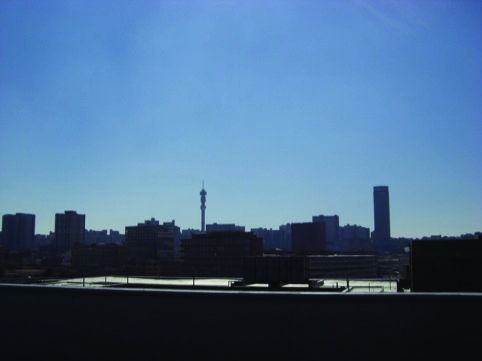
A trip to Johannesburg last week to survey preparations for South Africa’s third world sports tournament – following on from the 1997 Rugby World Cup won by that optimistic emerging nation and the Cricket World Cup it hosted in 2003 – yielded valuable insight for me, not just into the impact such a tournament can have on the local creative community, but also for national identity.
The experience could prove handy preparation for the Olympic Games that hit London in 2012 and magazine subscribers can read my observations in Design Week this week – or on www.designweek.co.uk.
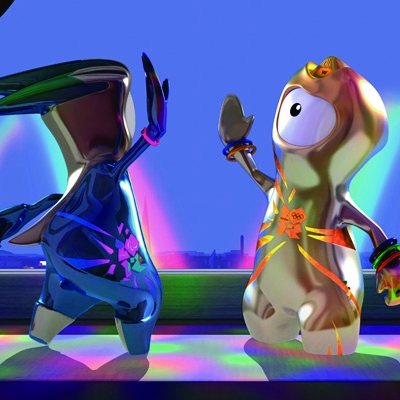
Source: London 2012 Mascots TM © LOCOG 2
Ironically, the Johannesburg trip coincided with the launch in the UK of Wenlock and Mandeville, the 2012 Olympic mascots, which, we’re told, go down well with children, but which drew gasps of horror from the design community, not least Sir Terence Conran, whose letter to The Times reminded us that the authorities studiously avoid the undoubted creative talent we have in the UK. It is little comfort that the green-haired South African World Cup leopard Zakumi isn’t any more engaging, looking in its cuddly form more like an embarrassing Bank Holiday fairground win than a cultural icon.
National and city identity are far more potent and something South Africa is embracing big time, with the World Cup mainly as a spur to programmes already in motion. One neat effort though is the brainchild of Johannesburg graphic designer Bradley Kirchenbaum.
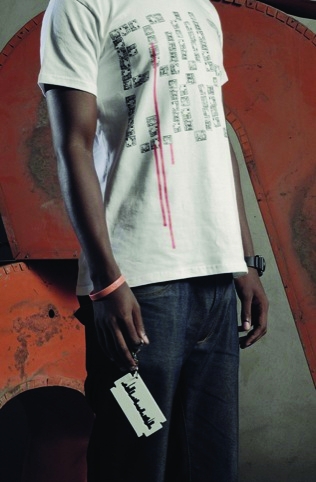
Kirchenbaum is creating T-shirts that address social issues as Katherine Hamnett did before him, but also give Johannesburg – and particularly the re-emerging Downtown district – a sense of identity. His Love Jozi brand picks up on the pet name of the city, with swing tags including a map of the city.
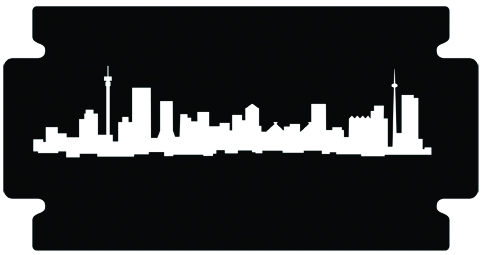
Love Jozi’s best-sellers include a shirt featuring the Johannesburg skyline – indeed, the Love Jozi branding takes the city’s two prominent towers as its book ends – and particularly an image of it set in a razor blade. Kirchenbaum has sensibly developed the motif into jewellery and other artefacts.
These beautifully crafted items are expensive in local terms, but Kirchenbaum has reached out to a broader public with his wares. Just as the City of Johannesburg launched an ‘underground’ campaign for its You Make Joburg Great programme, so he launched a subversive ‘rip-off’ brand.
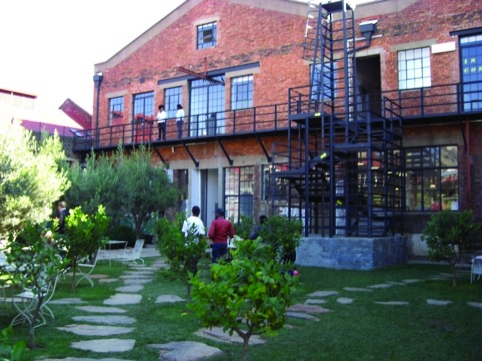
Luv Jozi uses similar imagery to its upmarket parent, but is mass-produced and cheaper. Love Jozi T-shirts sell for around £30, while the lookalikes go for much less.
Kirchenbaum let the spin-off brand run for a while before admitting ownership, but it is working well for him. It is also spreading the word about South Africa and identity – one of the more recent designs bears the slogan ‘I am an African’ in languages indigenous to the African continent in a bid to promote cohesion in the face of strife between local workers and immigrants from the rest of Africa.
Small moves like these help to build communities, whether geographic or through shared interests. It doesn’t always take a big plan to achieve this.
-
Post a comment




